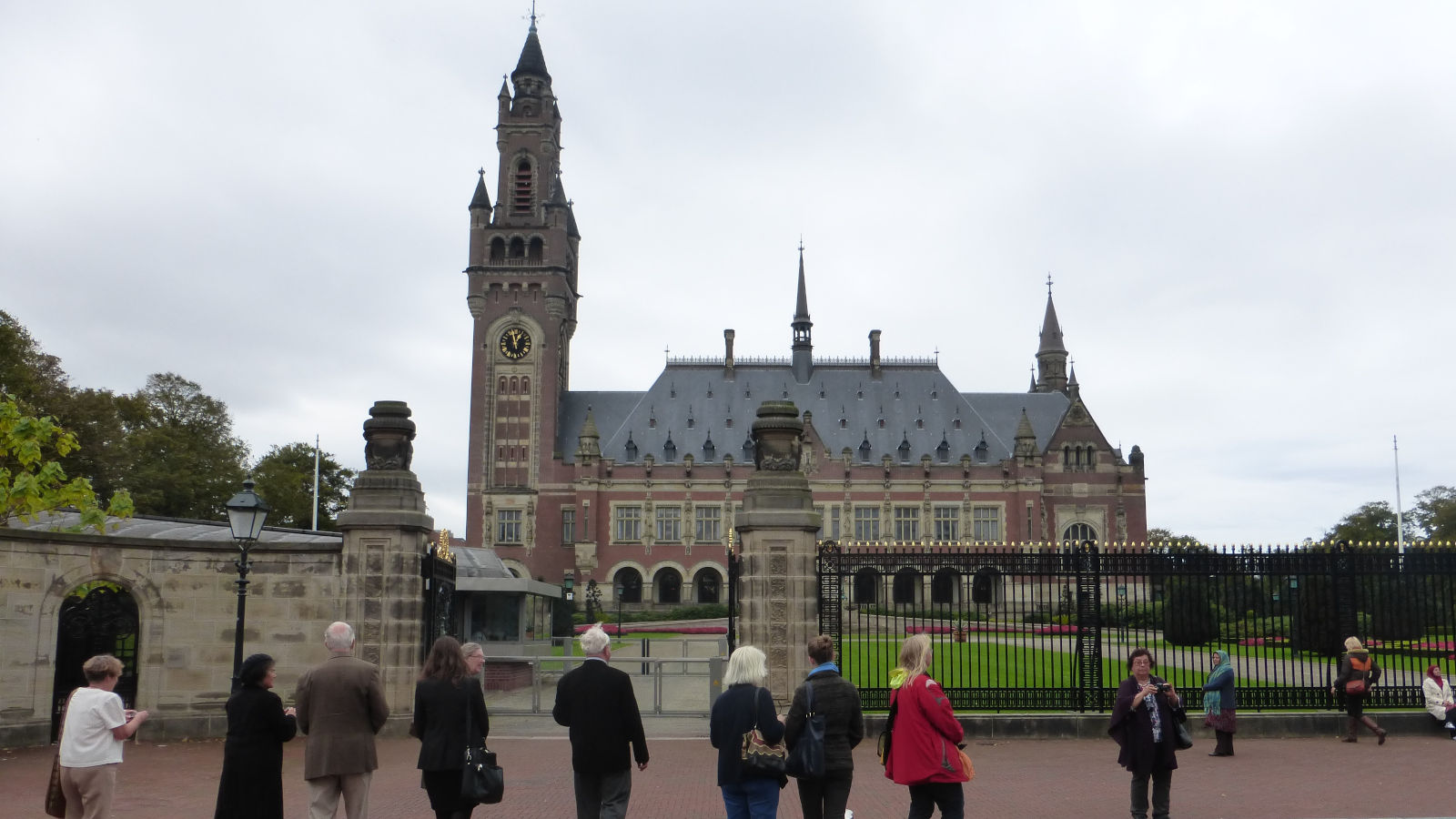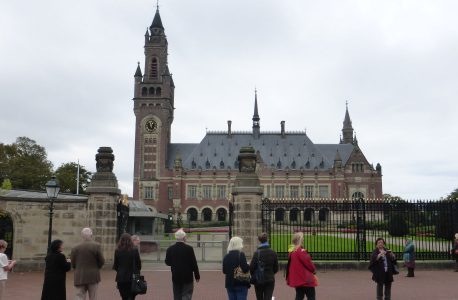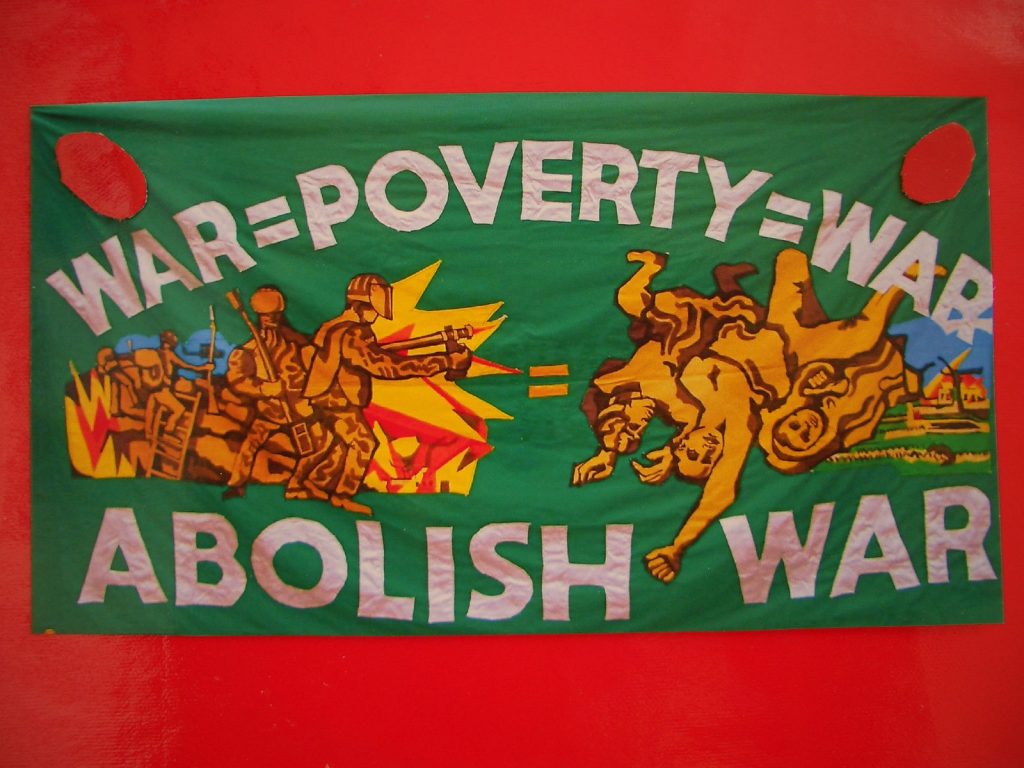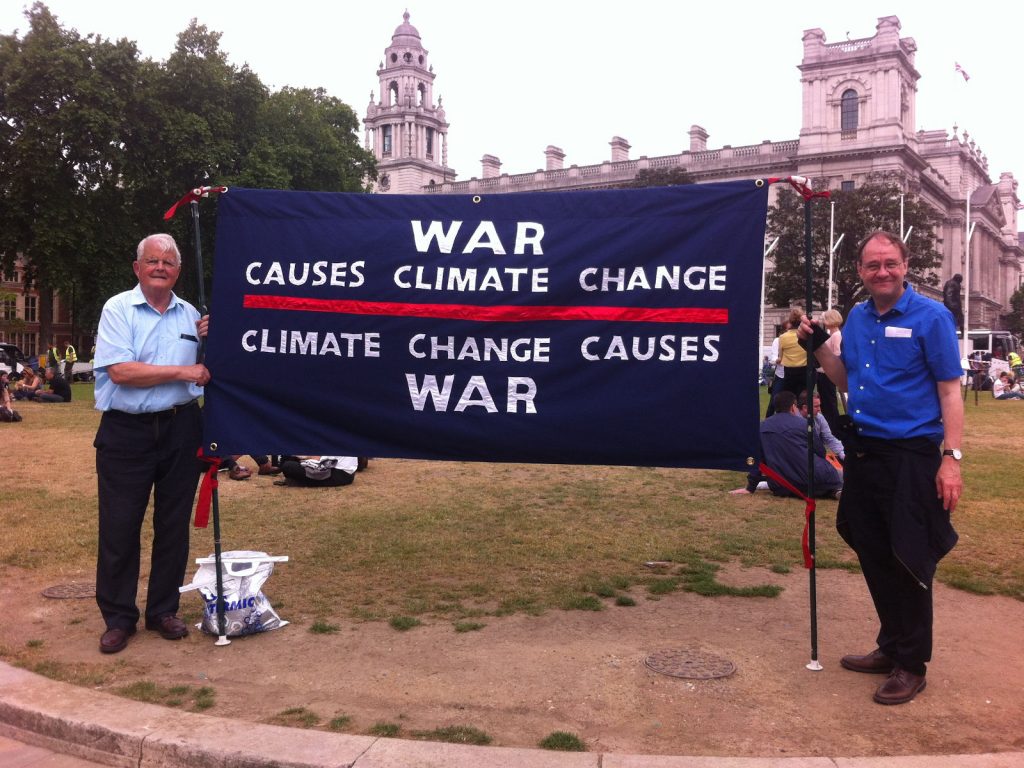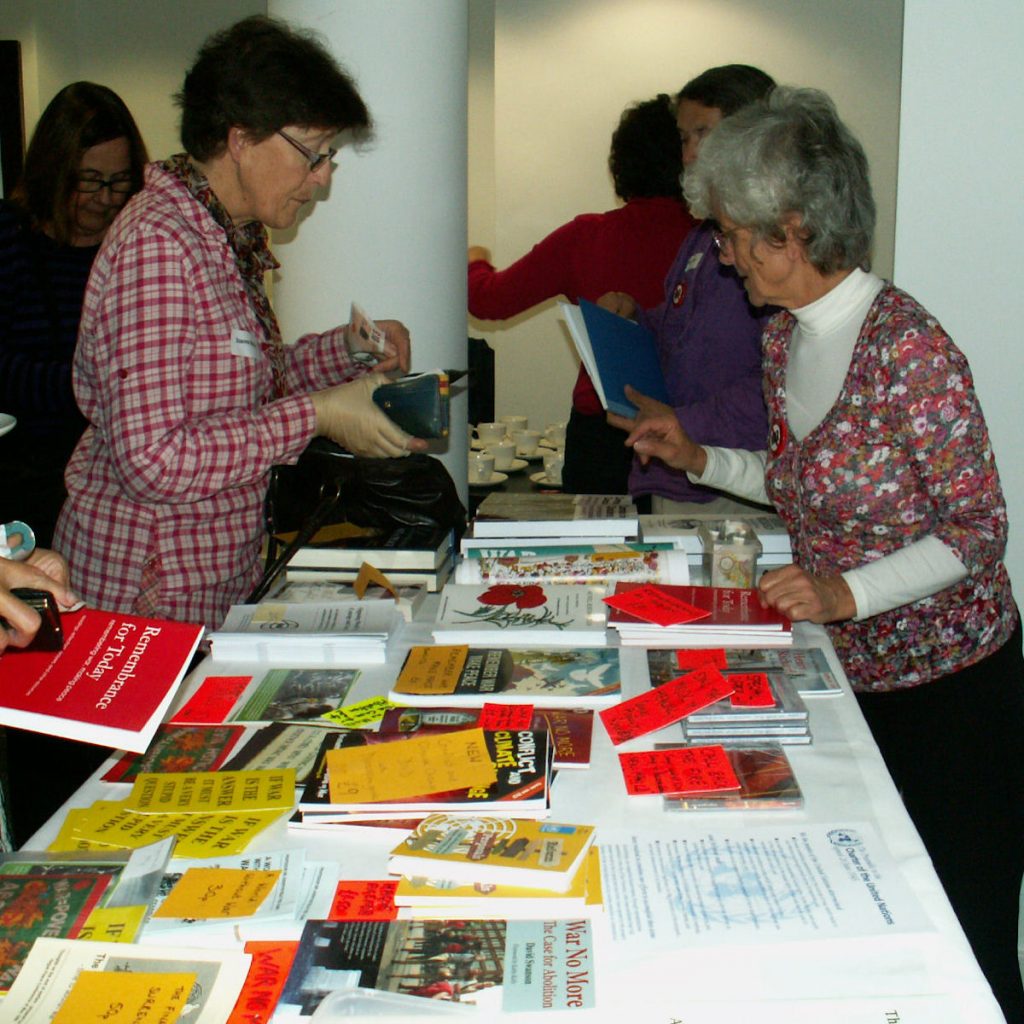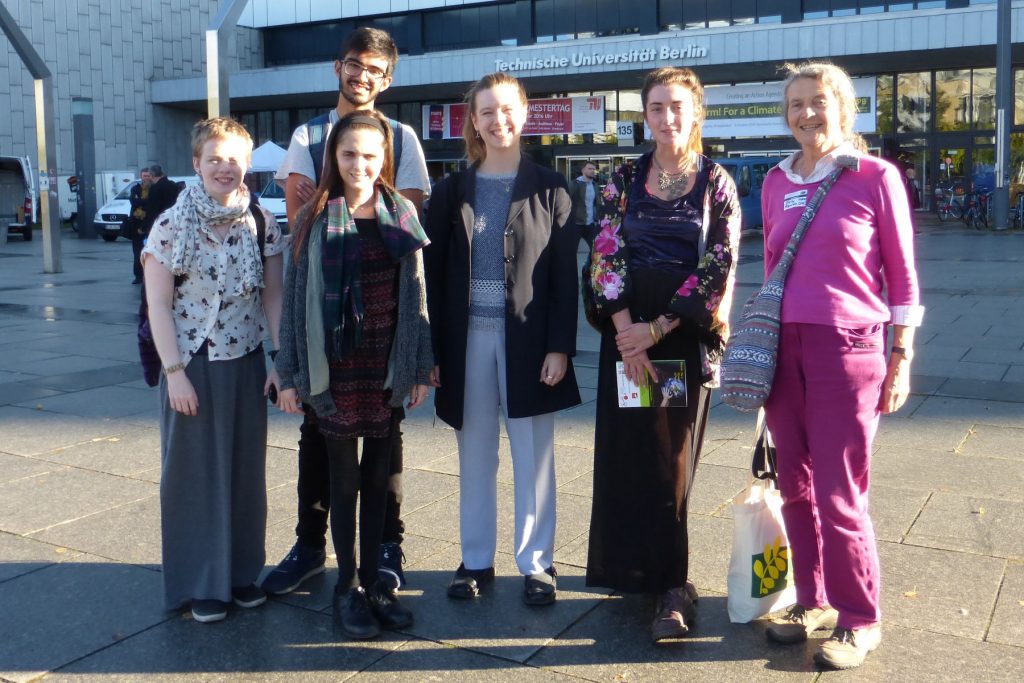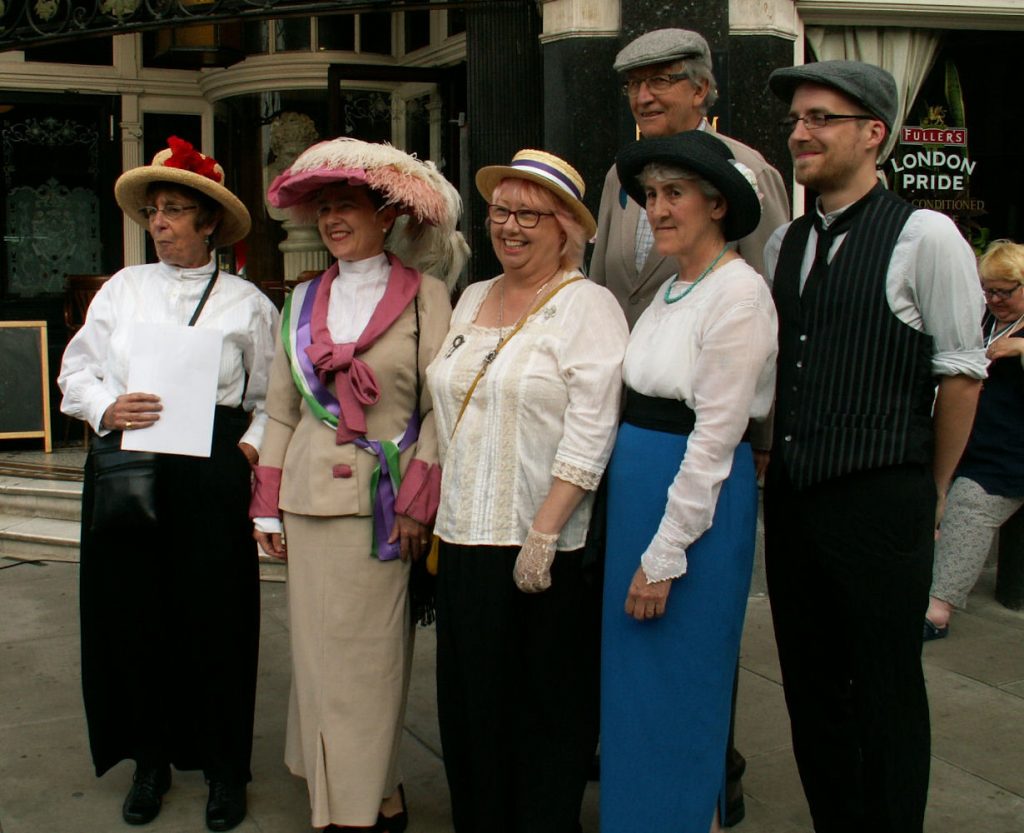Movement for the Abolition of War – the first 20 years
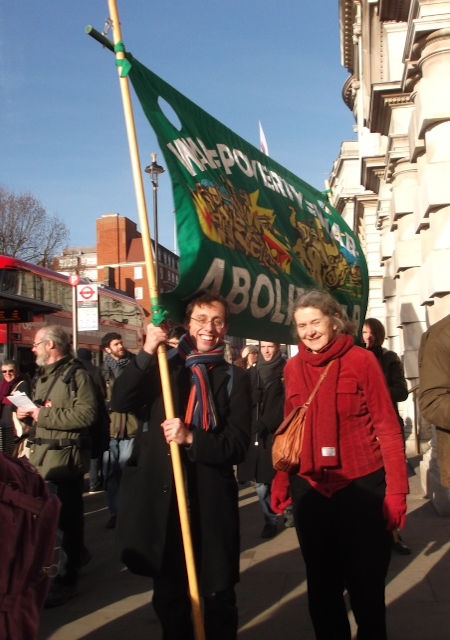
Conferences, publications and a regular newsletter are among some of the activities undertaken by members of the Movement for the Abolition of War. Its roots lie in the first Hague Conference called by Czar Nicholas II in 1899. Time to Abolish War – the huge repeat gathering in The Hague in 1999 – was an attempt to mark the centenary of Czar Nicholas’s initiative. His was a meeting of governments, while in 1999, 10,000 people from 100 groups and countries represented citizens.
We had our “Big Names” – Archbishop Desmond Tutu was the biggest, along with Professor Joseph Rotblat, whose refusal to work on the atomic bomb in 1944 should never be forgotten. Behind this extraordinary line-up was someone who should have been given the Nobel Peace Prize that year. Cora Weiss, from the International Peace Bureau and other organisations, with her team, really made that great Hague event possible.
For those who want to know more, the comprehensive Hague Appeal for Peace is still well worth looking at. But that meeting in The Hague was far from being the end of things. Only a few weeks later, on 22 May 1999, there was a big rally and concert in Central Hall Westminster, sponsored by more than 50 British peace organisations, under the umbrella of the Hague Appeal for Peace. It was so packed out that the main speakers, who included Professor Paul Rogers, had to repeat their talks to the overflow audience on the grass outside.
The next step in response to the Hague Appeal was a follow up meeting in London on 31 March, 2001. About 30 people came from many of the invited groups and another 30 sent their apologies. A steering group was set up – with Robert Hinde at the helm – and the good ship Movement for the Abolition of War steamed out on its way. It was not without a few critical comments from established peace groups. Why the need for MAW, asked one? The answer was precisely because MAW was open to all who wanted an end to war, not just to pacifists – a word that still needs definition. The “scourge of war” is how the preamble to the United Nations Charter describes it and to get rid of that scourge is MAW’s prime aim.
The MAW approach is to popularise positive pathways to peace rather than simply lament the destructive and damaging consequences of war, which we all know about. Making connections, underlining the inextricable links between war and poverty and climate change, is another distinctive feature of MAW’s work, as illustrated on our banners whenever we take to the streets in support of anti-war protests.
What have we achieved?
In terms of public education, MAW has done quite a lot. Four times a year our informative newsletter Abolish War goes out widely. We have this website and a Facebook page. We have also produced a series of postcards and pamphlets.
One of the earliest pamphlets was about Abdul Ghaffar Khan, The Frontier Gandhi, because MAW hopes to give prominence to the unknown nonviolent heroes and heroines of history. Among these we have also promoted, with information and commemorative events, the life and work of Henry Richard (1812-1888) the “Apostle of Peace” and “Member (MP) for Wales”.
Another concern has been to give the British Remembrance tradition a different slant by focusing on the abolition of war. Our booklet Remembrance for Today, a resource particularly for those responsible for services on the day, proved to be our best seller as a rich source of material to help remember the dead without glorifying war. A follow-up booklet, We Will Remember Them, a short anthology of alternative readings and reflections for Remembrance events, was also popular. Combat Stress is about the lasting effects of war on military personnel. Since 2001, we have held annual Remembrance Day lectures at the Imperial War Museum. Our distinguished speakers have included Shirley Williams, Caroline Lucas, Michael Morpurgo, Martin Bell, Helena Kennedy, Nobel Peace Prize-winner Mairead Corrigan Maguire and Vickie Hawkins, UK Director of Médecins Sans Frontières. We have run bookstalls at many events, such as the annual Faringdon Peace Fair and the National Justice and Peace conference in Derbyshire.
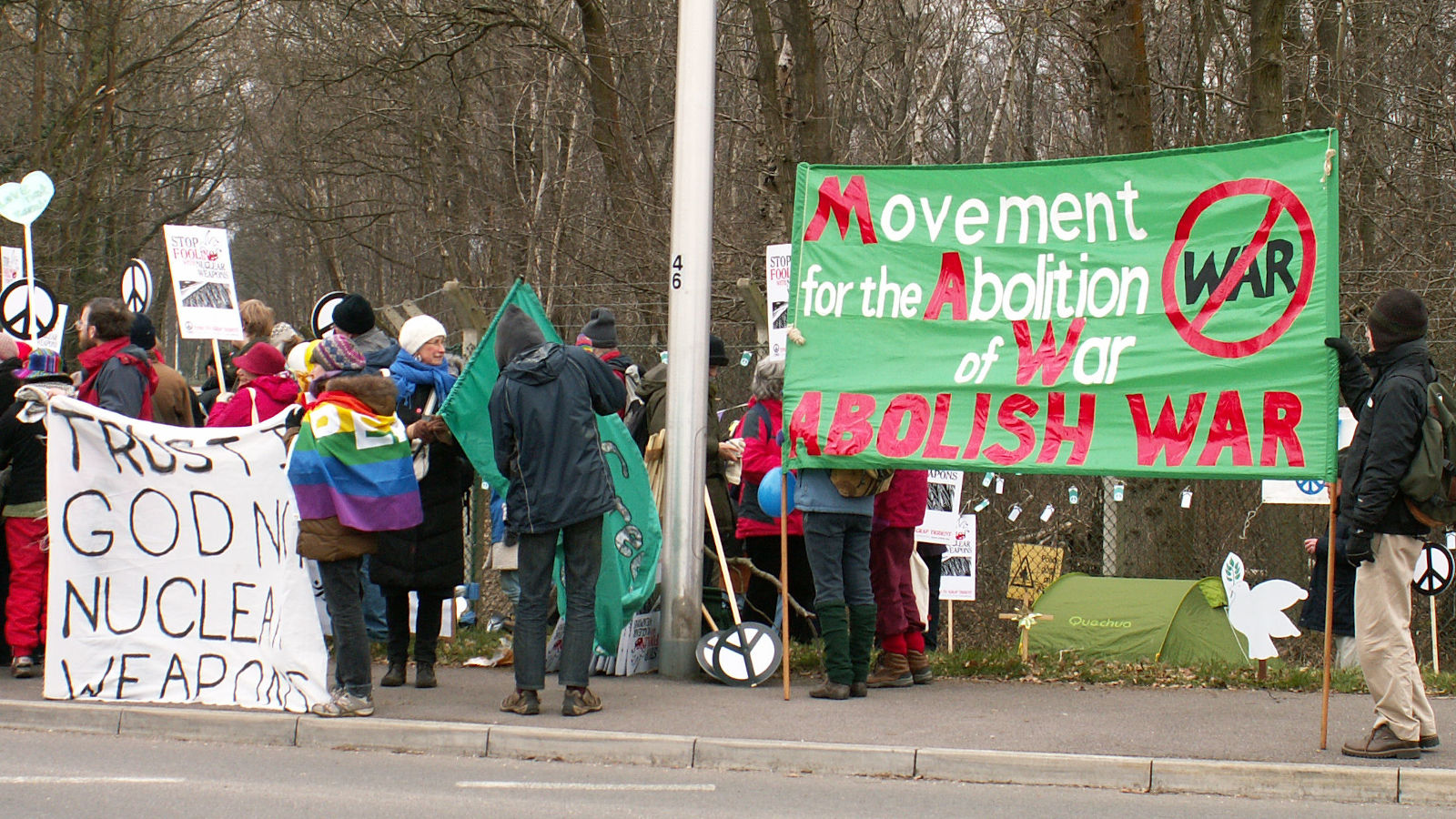
MAW speakers have frequently been invited by groups in different parts of the country to explain our views.
MAW has also raised funds to produce two professional DVDs. War No More outlines many of the strategies for abolishing war – in 14 minutes – while the second, Conflict and Climate Change, makes the point that these two major world problems cannot be separated. Both of these DVDs have been widely distributed, especially by Concord Media and Kevin Mayhew Ltd.
Our message has been spread through music too, with excellent CDs performed and recorded by MAW members: Sing the Music of Healing, Call Back the Fire, and a song cycle created to mark the centenary of the First World War.
Since 2007 MAW has sponsored a series of Peace History Conferences organised by independent committees, in London, Leeds, Cardiff and Manchester. They aim to help develop a culture of peace by raising awareness of individuals, movements, ideas and initiatives from all periods of history concerned with promoting peace, overcoming violence, and abolishing war.
MAW has also sponsored Peace Trails around London which offer an alternative view of history. The version for children has been especially popular and parents often express surprise at discovering new London landmarks.
We have never looked for a massive membership. A youth sub-committee, which started after the 2014 international summer peace camp in Sarajevo, offered a workshop at the International Peace Bureau’s 2016 Berlin conference.
A lot to do?
It took more than 100 years to get the British slave trade abolished. We have only been going for less than 25! Militarism runs deep in our society and its institutions. However, isn’t true security more about human and planetary wellbeing rather than military might?
Militarism runs deep in our society and its institutions, as it once did with sexism and racism, but it does not have to continue to be so. Society can change, but only if people push.
Can you help?
Movement for the Abolition of War,
1 Old Mill Place, Vicarage Lane
Haslemere, GU27 1NE
abolishwar.org.uk
info@abolishwar.org.uk
facebook/abolishwar

